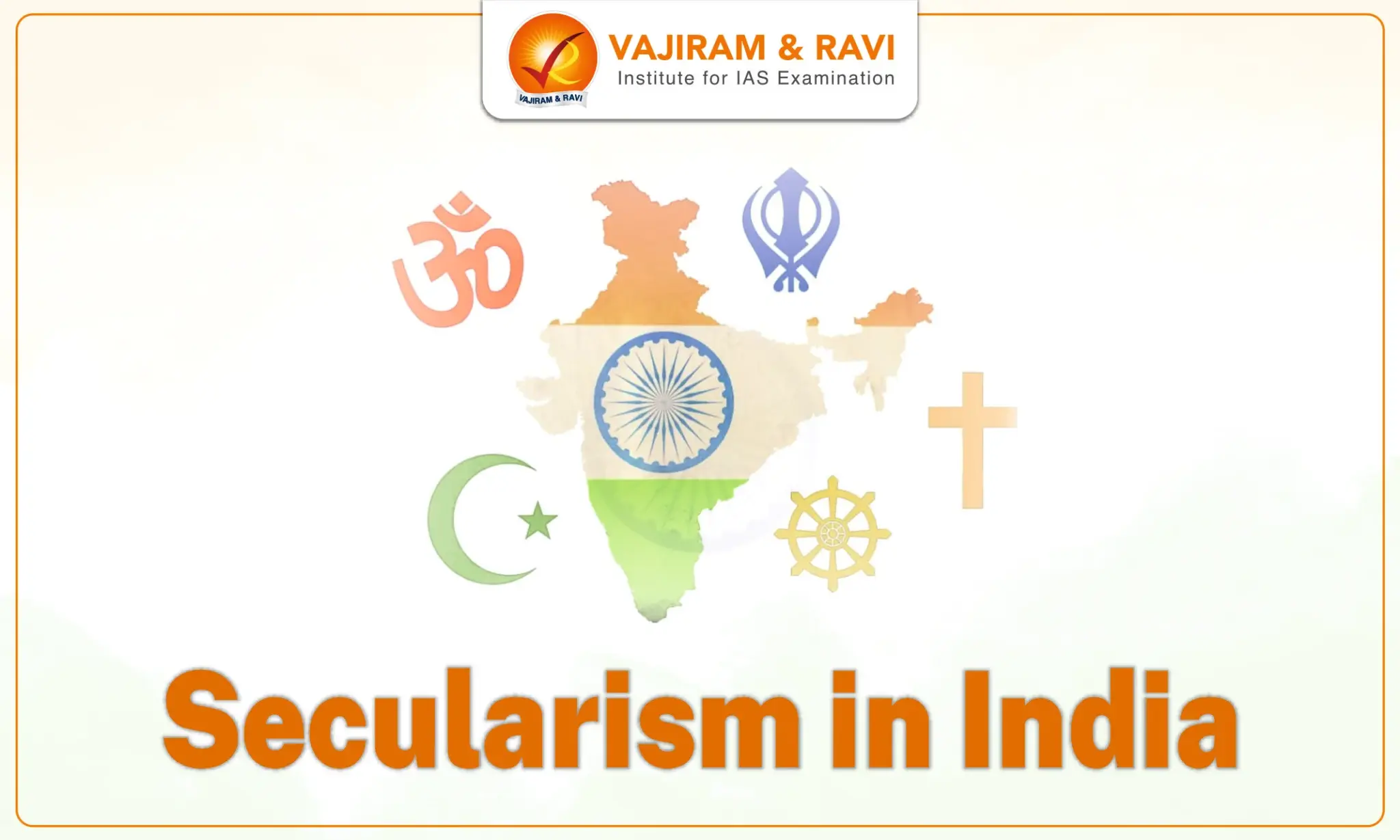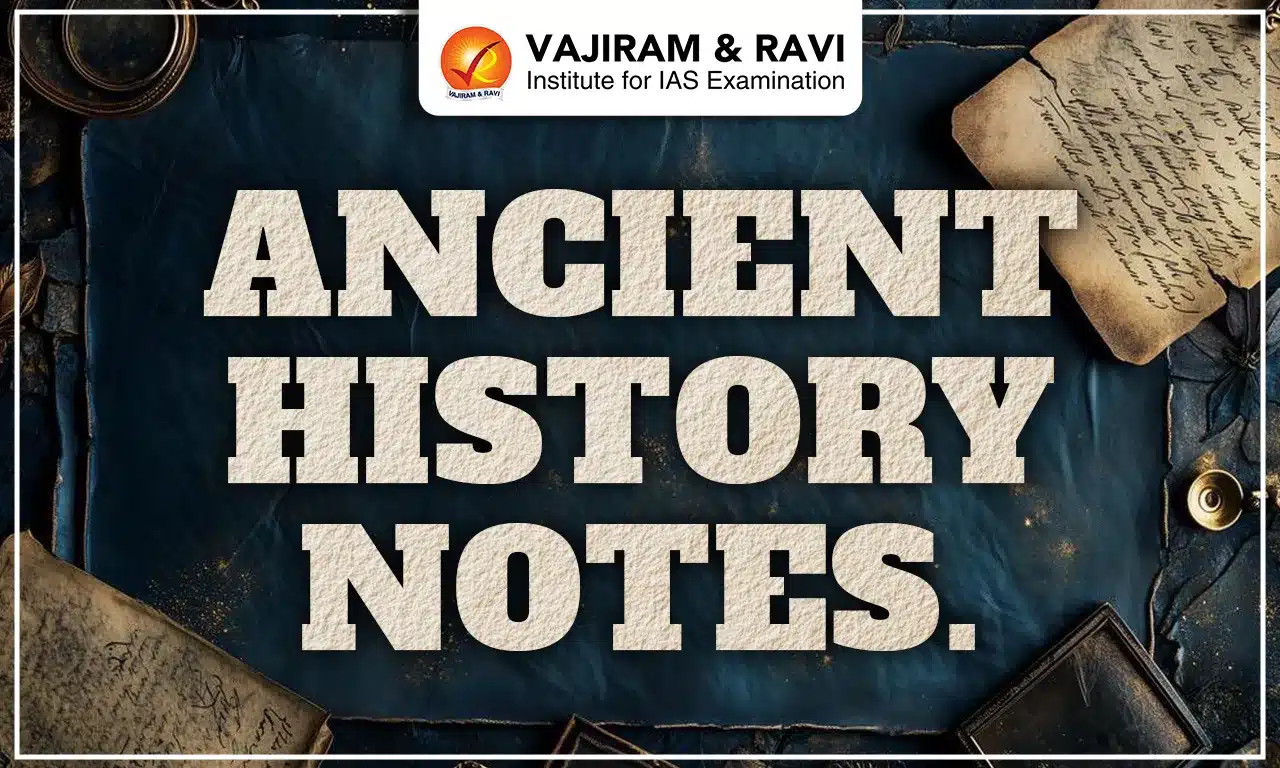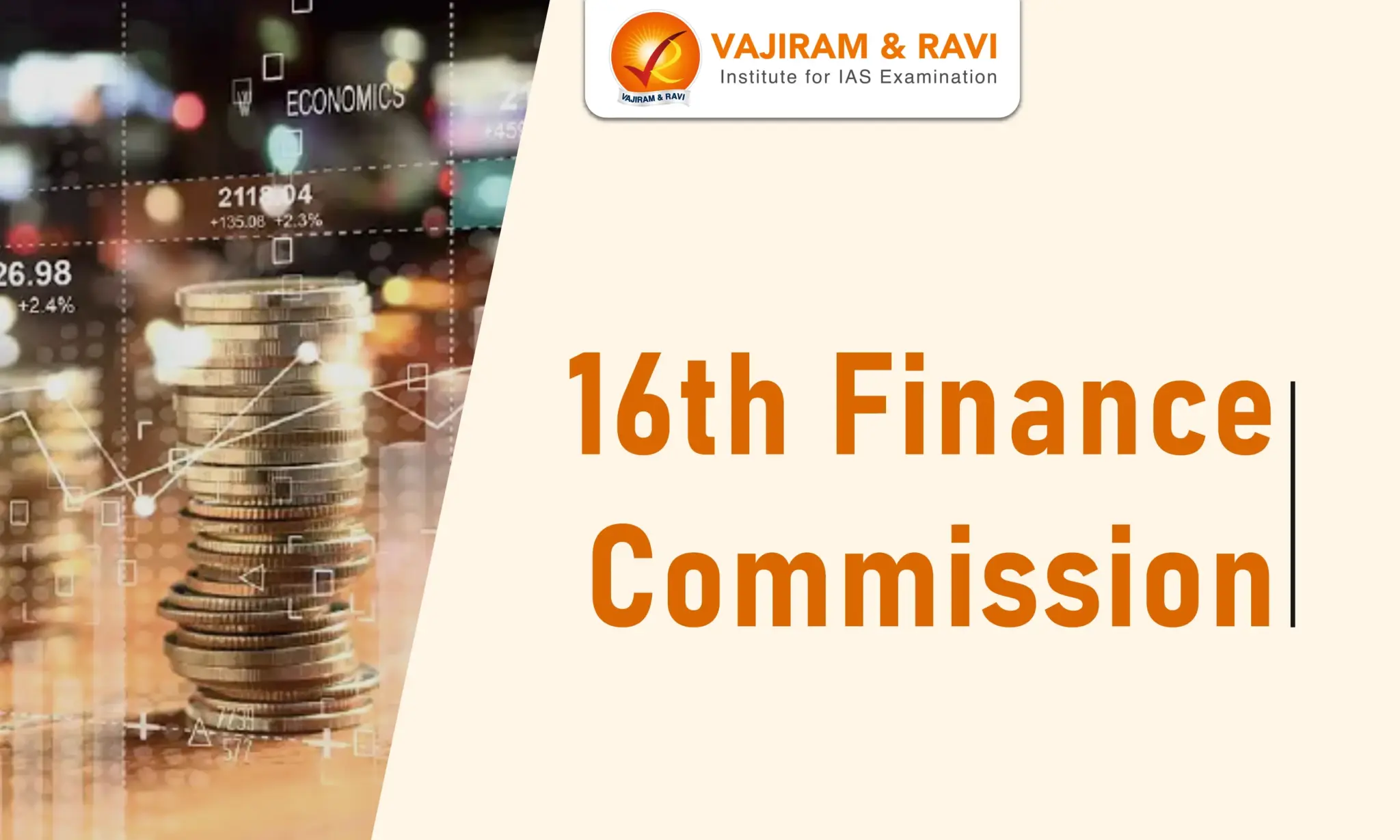What is Secularism?
Secularism is an ideology that emphasizes the separation of religion and the state and the neutrality of the government with respect to religious beliefs..
- It has broadly two meanings:
- Separation of religion from the state i.e. Dharm Nirpekshta.
- Equal respect to all religions by state i.e. Sarva Dharma Samabhava.
- The Indian constitution aims for a secular state where all religions are treated equally
What are the constitutional provisions pertaining to Secularism in India?
At the outset of the making of the Constitution, the concept of secularism was not expressly mentioned in the Indian Constitution. However, the Indian Constitution has spelled out several provisions in Part III(Fundamental Rights), Part IV(Directive Principles of State Policy), and Part IVA(Fundamental Duties) that reflect the existence of secularism.
| Article 14 |
|
| Article 16 (1) |
|
| Article 25 |
|
| Article 26 |
|
| Article 27 |
|
| Article 28 |
|
| Articles 29 and 30 |
|
| Article 51A Fundamental Duties |
|
| 42nd Constitutional Amendment Act, 1976 |
|
Apart from the Constitution, Judiciary has also helped shape Secularism in India.
- Kesavananda Bharati v. State of Kerala (1973): The Supreme Court held that secularism was a part of the basic structure of the Constitution.
- Bommai v Union of India (1994): The Supreme Court elaborated on the meaning of secularism. The Court said that secularism means equal treatment of all religions.
How is Indian Secularism different from Western Secularism?
Some major differences between the Indian and Western models of Secularism are
| Western Secularism | Indian Secularism |
| The Western concept of secularism connotes a complete separation between religion and the state. | Indian Constitution embodies the positive concept of secularism, i.e. giving equal respect to all religions. |
| The state cannot give financial support to educational institutions run by religious communities. Nor can it hinder the activities of religious communities as long as they are within the broad limits set by the law of the land. | The Indian Constitution permits partial financial support for religious schools, as well as the financing of religious buildings and infrastructure by the state. |
| It has no place for the idea of state-supported religious reform. |
Indian secularism is compatible with the idea of state-supported religious reform. Example: The Constitution bans untouchability, the government has enacted laws abolishing child marriage, etc. |
| In western secularism, individual rights are at the forefront. | Indian secularism deals not only with religious freedom of individuals but also with the religious freedom of minority communities. |
What are the criticisms of the Indian model of Secularism?
Indian secularism has been subjected to various criticisms. Some of these are:
- Anti-religious: It has been argued by some that secularism threatens religious identity.
- However, secularism is against institutionalized religious domination. This is not the same as being anti-religious.
- Western import: Another criticism is that secularism is linked to Christianity, that it is western and, therefore, unsuited to Indian conditions.
- However, the mutual exclusion of religion and state, which is supposed to be the ideal of western secular societies, is not the defining feature of all secular states.
- Minoritism: It is argued that Indian secularism advocates minority rights.
- However, the constitution protects the most fundamental interest of minorities
- Interventionist: It is claimed that secularism is coercive and that it interferes excessively with the religious freedom of communities.
- However, Indian secularism follows the concept of principled distance, which also allows for non-interference.
- Vote Bank Politics: There is the argument that secularism encourages the politics of vote banks.
What are the factors that threaten India’s secular fabric?
- Political interference in religion: Increasing interference of religion in politics is a major challenge facing the secular state.
- Candidates for elections are selected based on religious considerations, and votes are cast based on religious sentiments.
- Non-separation of religion from politics: Events in the past like the demolition of the Babri Masjid, anti-Sikh riots in 1984, Mumbai riots in 1992 and 1993, Godhra riots in 2002, etc., have shown the well-established problem of communalism raising its head now, and then.
- Exclusion of minorities: There are feelings of insecurity in religious minorities still today. This makes it difficult to create a secular society.
- Sachar Committee had reported, “while Muslims constitute 14 percent of the Indian population, they comprise only 2.5 percent of the Indian bureaucracy”.
- Growing radicalization: In recent years, there have been stray incidences of youth being inspired and radicalized by groups like ISIS, posing a threat to the secular fabric of the nation.
- Religious intolerance: Religious intolerance is also on the rise recently.
- Example: Delhi riots 2020.
What measures can help India become a truly secular state?
The Indian constitution aims for a secular state. To strengthen its ideas further following steps can be taken:
- Education as a tool: Education is a means to effect change in the mindset of people. Individual examples of sharing and mutual help could reduce prejudice and suspicion between communities.
- Social Reforms: Movements for social reform, like Uniform Civil Code, will have to be organized and public opinion mobilized. Also, Minorities should be encouraged to participate in the mainstream of national life.
- Move towards secular politics: Communal politics and vote bank politics need to be replaced by secular politics to ensure religious tolerance.
- Combating religious extremism: Strong measures need to be taken to combat religious extremism and promote a culture of tolerance and mutual respect.
- Protecting minority rights: It includes ensuring equal access to education, employment, and other opportunities, as well as protecting minority communities from violence and hate crimes.
India has come a long way since independence to make a secular society. However, steps like social reforms, religious tolerance, etc., need to be further strengthened to achieve the goal of Constitution makers.
Last updated on February, 2026
→ UPSC Notification 2026 is now out on the official website at upsconline.nic.in.
→ UPSC IFoS Notification 2026 is now out on the official website at upsconline.nic.in.
→ UPSC Calendar 2026 has been released.
→ UPSC Final Result 2025 is expected to be released in the second week of April 2026.
→ Check out the latest UPSC Syllabus 2026 here.
→ Join Vajiram & Ravi’s Interview Guidance Programme for expert help to crack your final UPSC stage.
→ UPSC Mains Result 2025 is now out.
→ UPSC Prelims 2026 will be conducted on 24th May, 2026 & UPSC Mains 2026 will be conducted on 21st August 2026.
→ The UPSC Selection Process is of 3 stages-Prelims, Mains and Interview.
→ Prepare effectively with Vajiram & Ravi’s UPSC Prelims Test Series 2026 featuring full-length mock tests, detailed solutions, and performance analysis.
→ Enroll in Vajiram & Ravi’s UPSC Mains Test Series 2026 for structured answer writing practice, expert evaluation, and exam-oriented feedback.
→ Join Vajiram & Ravi’s Best UPSC Mentorship Program for personalized guidance, strategy planning, and one-to-one support from experienced mentors.
→ Check UPSC Marksheet 2024 Here.
→ UPSC Toppers List 2024 is released now. Shakti Dubey is UPSC AIR 1 2024 Topper.
→ Also check Best UPSC Coaching in India
Frequently Asked Questions (FAQs)
Q1. What is Sarva Dharma Samabhava?+
Q2. What are the features of Indian Secularism?+
Tags: quest secularism in india
















